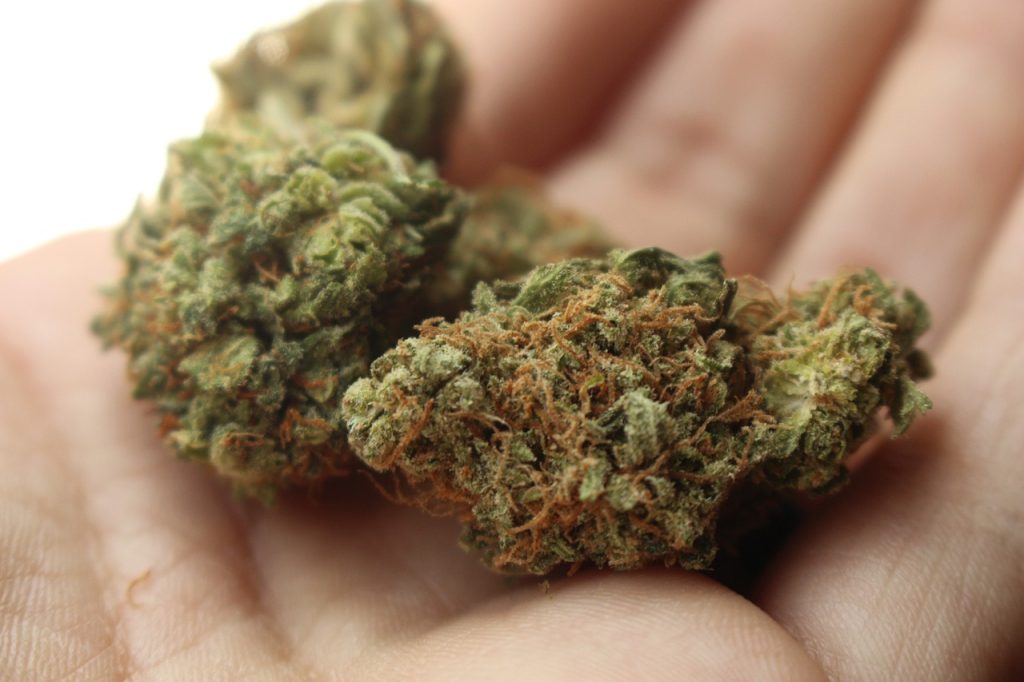
THCa, short for tetrahydrocannabinolic acid, is a non-intoxicating compound found in raw cannabis plants. Unlike its more famous counterpart, THC (delta-9-tetrahydrocannabinol), THCa doesn’t produce the “high” associated with cannabis consumption. Instead, it is the precursor to THC, meaning that it transforms into THC when exposed to heat through processes like smoking, vaping, or cooking. THCa is abundant in fresh, unprocessed cannabis plants, making it a key component for those seeking the raw benefits of cannabis without the psychoactive effects.
What Happens When THCa Is Heated or Smoked?
When THCa is subjected to heat, a chemical process known as decarboxylation occurs, converting it into THC. During this transformation, THCa loses a carboxyl group (COOH), which activates the psychoactive properties that THC is known for. Once converted, THC binds to cannabinoid receptors, primarily CB1 receptors in the brain, leading to various effects such as euphoria, relaxation, and altered perception. The potency of these effects can vary based on the strain, dosage, and individual sensitivity.
Is THCa Legal to Use?
On a federal level, THCa is legal as long as it complies with the delta-9 THC threshold of 0.3%. However, state laws regarding THCa can differ, creating a complex legal landscape. In some states, THCa derived from hemp may be more accessible than THC products due to legal loopholes. For instance, in Florida, only delta-9 THC is restricted under state medical marijuana laws, leaving THCa products unregulated. Similarly, in Texas, Farm Bill-compliant THCa remains legal under federal guidelines.
THCa Side Effects
THCa itself does not cause intoxication or psychoactive effects. Consuming raw THCa or ingesting products like gummies made from it won’t result in a high, but it can still appear on drug tests, potentially leading to a failed test. Common side effects of THCa include nausea, indigestion, allergic reactions, and potential interactions with prescription medications. The main concern with THCa arises when it is heated or smoked, converting it into THC, which carries its own set of effects and risks.
Short-Term Side Effects of Heating/Smoking THCa:
- Euphoria and relaxation
- Altered perception
- Impaired memory and cognition
- Dry mouth and increased thirst
- Bloodshot eyes
- Increased heart rate
- Anxiety and paranoia
Long-Term Side Effects of Smoking THCa
Prolonged use of THC, especially during adolescence, has been linked to negative health outcomes. Long-term consumption can lead to dependency, with withdrawal symptoms when usage stops. Smoking THC can also have detrimental effects on lung health, including respiratory issues and chronic bronchitis. Furthermore, excessive use of high-potency THC has been associated with an increased risk of mental health disorders such as depression, anxiety, and psychosis.
Dangers of Unregulated THCa
While regulated THCa products, such as those sold as raw food supplements or in capsules, are typically backed by third-party lab testing to confirm purity and potency, unregulated THCa products pose significant risks. These risks include inconsistent potency, contamination, and a lack of proper labeling and information, which can lead to unexpected and potentially dangerous effects.
Six Risks of Unregulated THCa:
- Inconsistent Potency: Without standardized testing, unregulated THCa products may vary in concentration, making it challenging to determine the correct dosage and leading to unexpected outcomes.
- Contamination: Unregulated products carry a higher risk of contamination with harmful substances like pesticides, heavy metals, and molds, posing serious health risks.
- Lack of Labeling and Information: Unregulated products may lack accurate labeling, making it difficult for consumers to understand dosage, ingredients, and potential side effects.
- Legal Implications: Depending on local laws, unregulated THCa products may be illegal, leading to potential fines or legal consequences.
- Safety Concerns: Poor manufacturing practices and inadequate quality control in unregulated products can jeopardize consumer safety.
- Lack of Consumer Protection: Unlike regulated markets, unregulated THCa products do not offer consumer protections, such as the ability to report adverse reactions or seek compensation.
For a reliable and safe source of THCa products, visit Rowe’s Cannabis Dispensary in Macon on Zebulon Rd or in Warner Robins on Houston Lake Rd. Rowe’s is your trusted dispensary for high-quality, lab-tested cannabis products, ensuring you receive the best experience without the risks associated with unregulated products.
